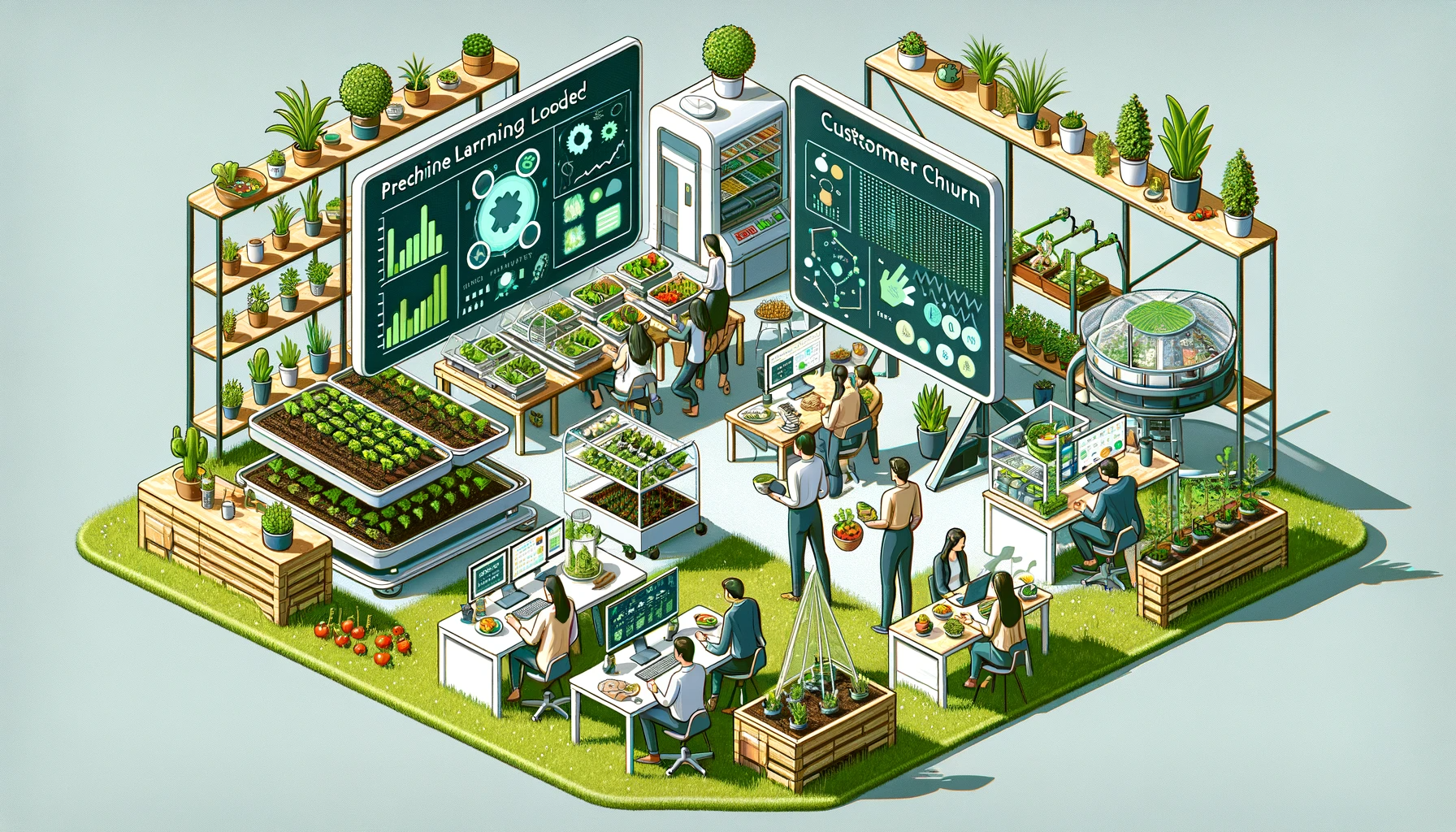Churn-Prevention for Healthy Meal-Kit Subscriptions

Machine Learning Model for Churn Prevention in a Healthy Meal-Kit Company
Overview
A Norway-based company specializing in healthy meal kits faces the challenge of customer churn. To tackle this issue, the company plans to implement a Machine Learning (ML) project. The goal is to develop a predictive model that can identify potential churn risks based on various customer data points. This proactive approach aims to retain customers by understanding and addressing their needs before they decide to leave.
Challenge
Customer Attrition: The company is experiencing a loss of customers, which affects revenue and market position.
Diverse Customer Data: The company has access to a variety of customer data, but it remains underutilized in understanding customer behavior and satisfaction.
Reactive Customer Engagement: Current strategies for customer engagement are reactive, only addressing issues after a customer has decided to leave.
Tailoring Customer Experience: Difficulty in personalizing the customer experience to individual preferences and needs, which is key in the meal kit industry.
Proposed Solution: Predictive Churn Prevention Model
Data Aggregation and Analysis: Collect and integrate diverse data sources, including order history, customer feedback, engagement levels, and demographic information.
Development of ML Model: Utilize advanced machine learning algorithms to analyze this data and identify patterns that indicate a risk of churn. The model will be trained to predict which customers are likely to leave and identify the contributing factors.
Personalized Customer Interventions: Based on the model’s insights, design targeted interventions for at-risk customers. This could include personalized offers, meal recommendations, or outreach from customer service to address potential concerns.
Continuous Model Refinement: Regularly update and refine the ML model with new data to improve its predictive accuracy and relevance.
Feedback Loop Integration: Establish a system for collecting and integrating customer feedback into the model, ensuring that it adapts to changing customer preferences and market trends.
Expected Outcomes
- Reduced Customer Churn: By proactively identifying at-risk customers, the company can implement targeted strategies to improve retention.
- Enhanced Customer Understanding: Deeper insights into customer behavior and preferences will enable more effective personalization of the meal kit offerings.
- Improved Customer Satisfaction: Personalized interventions and improved service offerings based on predictive analytics will enhance overall customer satisfaction.
- Data-Driven Decision Making: The company will evolve to a more data-driven approach in its customer relationship management, leading to better business strategies and outcomes.
Conclusion
This ML project represents a strategic initiative for the meal kit company to enhance customer retention and satisfaction through data-driven insights. By predicting potential churn risks and implementing personalized interventions, the company aims not only to reduce customer attrition but also to strengthen its position in the competitive healthy food industry in Norway. The integration of machine learning into customer relationship management heralds a new era of proactive and personalized customer engagement for the company.